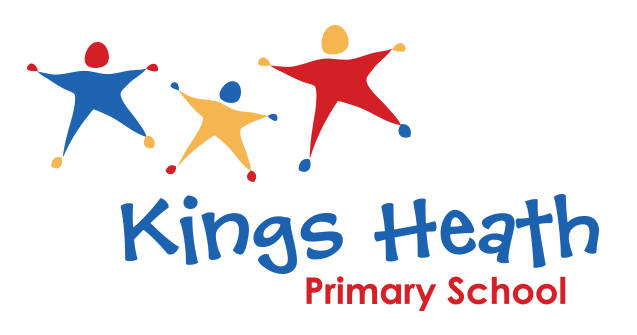Mathematics
Mathematics Overview - Kings Heath Primary School
Curriculum
-
The White Rose Maths scheme was adopted because it uses the mastery approach of teaching to deliver the National Curriculum. This means that:
-
All children are given the opportunity to succeed by working together as a whole and they are not grouped according to current attainment or predicted outcomes;
-
Emphasis of teaching is on deepening understanding rather than accelerating their breadth of knowledge;
-
Mathematics is experienced through concrete resources/physical objects; pictorial representations and lastly abstract problems
-
Lessons are sequenced used variation not variety (this allows the concept to be focussed on rather than the numbers).
-
Mathematics lessons are supplemented by an additional number lesson which is delivered in two forms.
-
Firstly, from Reception to Year 2, Mastering Number sessions (created by the NCETM) are delivered daily which focus on the early stages of learning number.
-
Secondly, for KS2 a number lesson is taught focussing on multiplication and division facts and their conceptual relationships.
-
At the beginning of each lesson, the Flashback 4 slide is shown which quizzes the children on what they learned yesterday, last week and last year ensuring that topics are routinely revised.
-
Maths progression overview for the whole school.
Continuing Professional Development
-
The mathematics lead supported by another nominated teacher continue to take part in the NCETM’s mastery pathway. Having completed Mastery Readiness in the Year 2021-2022 with an NCETM professional development lead (Sarah Evers), they have progressed onto the next stage which is Mastery Development in the Year 2022-23 with another NCETM professional development lead (Lisa Cole).
-
A nominated teacher from Reception to Year 2 take part in half-termly training for the delivery of the Mastering Number lessons from a qualified NCETM professional development lead (this is a national programme and the leaders have varied). They disseminate to the other teachers in the year group.
Assessment, Marking and Evidence Recording
(keeping a record to show evidence of pupils’ progress) – KHPS follow the guidance provided by the NCETM (https://www.ncetm.org.uk/media/wuch3xua/ncetm-primary-marking-guidance-april-2016.pdf).
-
The children’s progress is monitored each lesson.
-
Regular opportunities for discussion of answers and strategies to support pupils’ reasoning skills are used to check and deepen their understanding throughout the lesson;
-
There is interaction and dialogue (between teacher and pupils, and between pupils themselves), focusing on key ideas and concepts (including misconceptions and difficult points) and effective, efficient strategies of working mathematically.
-
Teachers to distinguish between a pupil’s simple slip and an error that reflects a lack of understanding.
-
For slips, it is often enough to simply indicate where each slip occurs, particularly when the teacher’s/school’s approach is to encourage pupils to correct them;
-
If errors demonstrate lack of understanding, the teacher may decide to take alternative courses of action. For instance, with a small number of pupils, the teacher may arrange same-day intervention while for a large number of pupils, the errors will be addressed in the next lesson.
-
Evidence shows (Black and Wiliam 1998) that pupils benefit from marking their own work. Part of this responsibility is to identify for themselves the facts, strategies and concepts they know well and those which they find harder and need to continue to work on.
-
Start and end-of-topic assessments are used to monitor progress over a block of teaching.
Materials
The focus of the mathematics budget has been to support the focus of improving the teaching of number. Therefore, concrete resources have been purchased that complement the Mastering Number lessons delivered int Reception and Key Stage 1.
Technology
To supplement the teaching of mathematics, two programmes are used for daily practice.
-
Firstly Numbots, is used to support children develop their knowledge and understanding of early number including subitising, bonding, addition and subtraction, and uses a variety of models and images that are also utilised in Mastering Number and WRM.
-
Secondly, Times Tables Rock Stars is used to memorise multiplication and division facts.
